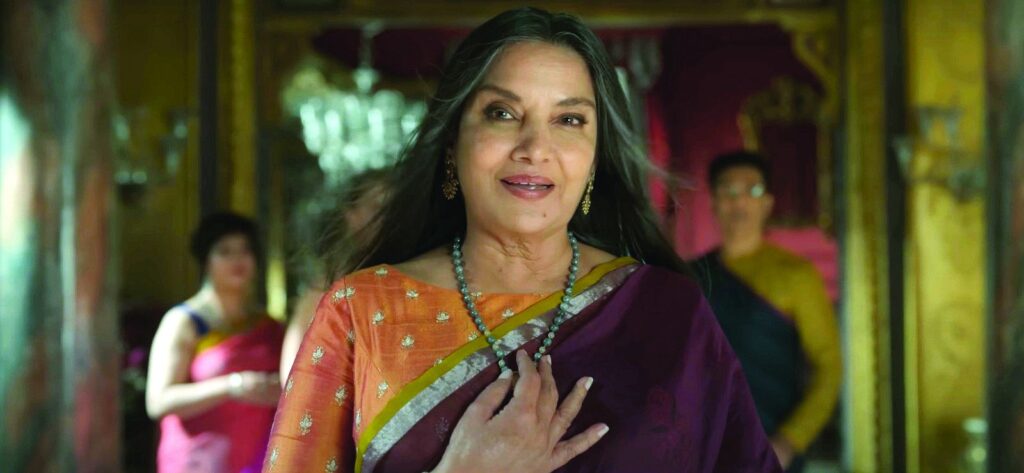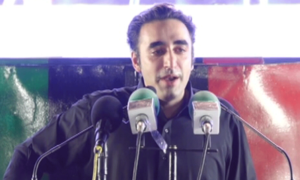Shabana Azmi, who recently completed 50 years of working in the Indian cinema, spoke fondly to BBC News about legendary poet Faiz Ahmad Faiz and recited some of her favourite verses from him. Furthermore, she discussed the evolution of cinema since her time, relaying her insights on how art should be engaged with.
Connecting with a poet
Faiz is immortalised in the veteran actor’s memory because she did have the opportunity to meet him. “Actually, Faiz sahab was in Moscow. He was a very soft and tender-hearted person. He told me to read a poem, which made me nervous. I told him that I couldn’t read Urdu, which shocked him,” she revealed.
The poet’s immediate reaction was to put Shabana’s parents at fault, so she quickly clarified that she can fluently speak the language. She just didn’t know how to read and write it.
“I told him that I enjoyed his poetry,” she said, before listing a series of unfortunate recitations that she attempted in his presence, only to be informed that the verses didn’t belong to Faiz, unlike how she’d boldly declared earlier.
“The way I ran from there!” she exclaimed, laughing. “And after I ran away, I started remembering all his verses and tunes. But by that time, I had already made a fool of myself. However, afterwards what did happen was that no matter where I’d go, Faiz’s anthology Saare Sukhan Humare always stayed with me.”
Despite that failed opportunity to charm him with her devotion to his craft, Shabana beautifully recited some of his verses during the interview, wonderfully redeeming herself since that moment years ago.
Later, she mentioned, “This isn’t the full poem, but some of its parts that deeply touch me. Because I feel that there’s a lot of truth, a lot of delicacy, and a lot of decency in this one.”
Throwback to her debut
Although now they are considered giants in the industry, Shabana’s first role was offered to her by the late Shyam Benegal, whose project at the time had already been rejected by a few female actors due to unknown reasons.
Shyam extended the opportunity to star in Ankur (1974) to the 74-year-old actor shortly after a conversation regarding the demands of the role. Soon after, he also revealed that he’d be working on Nishant (1975) and wanted Shabana on board for that too.
“So I went home and told my mother that I didn’t want to get into a fraudulent situation. Why would they be letting me work on two films?” she recalled. “18 days later, I was in Hyderabad and actually working on the project. However, I had no idea that the film would take off this well and influence an era of parallel cinema.”
Stepping stone towards success
Retrospectively, the Earth actor believes that it was important for her to work in mainstream cinema in order to become a “star”. She was also hopeful that should those films be successful, they would be revisited in the following generations.
On the presentation of women on the big screen, she observed, “The business of the cinema is in images. As in, what kind of images you are showing. If in a song, you’re portraying a woman’s heaving bust, or swiveling navel, or swinging hips then you are fragmenting the body. And in that case, you are distributing that person. You are taking away autonomy from the girl and subjecting her to the male gaze.”
Shabana also acknowledged the other side of the debate, citing women who wish to pursue roles like this with the assertion that their male counterparts do the same. “I think the whole concept is very blurred at the moment. I do hope that with time, as this discourse keeps popping up, that will change,” she said.
Politics in art
The Rocky Aur Rani Kii Prem Kahaani actor believes that art should be granted total liberty. “If you find a film distasteful, just don’t watch it. But art shouldn’t be uniform. Yes, there is a fear that such a thing would compromise on law and order. But why? Why would law and order get out of the hands of the government?” she posed.
Discussing her film Arth (1982), she also recalled a time when the distributors, who in fact enjoyed the film, raised objections about the ending. The film portrayed the leading man apologising for his infidelity, only for the woman to deny him forgiveness.
According to Shabana, the distributors believed that such an ending wouldn’t fare well with the audience. But she and director Mahesh Bhatt stood by the intent of the film, and their efforts proved fruitful. “Everyone was ridden with shock because instead of flopping, the film gained a cult following,” she said.
Shabana believes that the true power of film lies in the fact that it prompts a variety of opinions. Some people might enjoy it while others would strongly oppose it. “When people question films, it gives them the responsibility to seek out the answers themselves,” she concluded.











